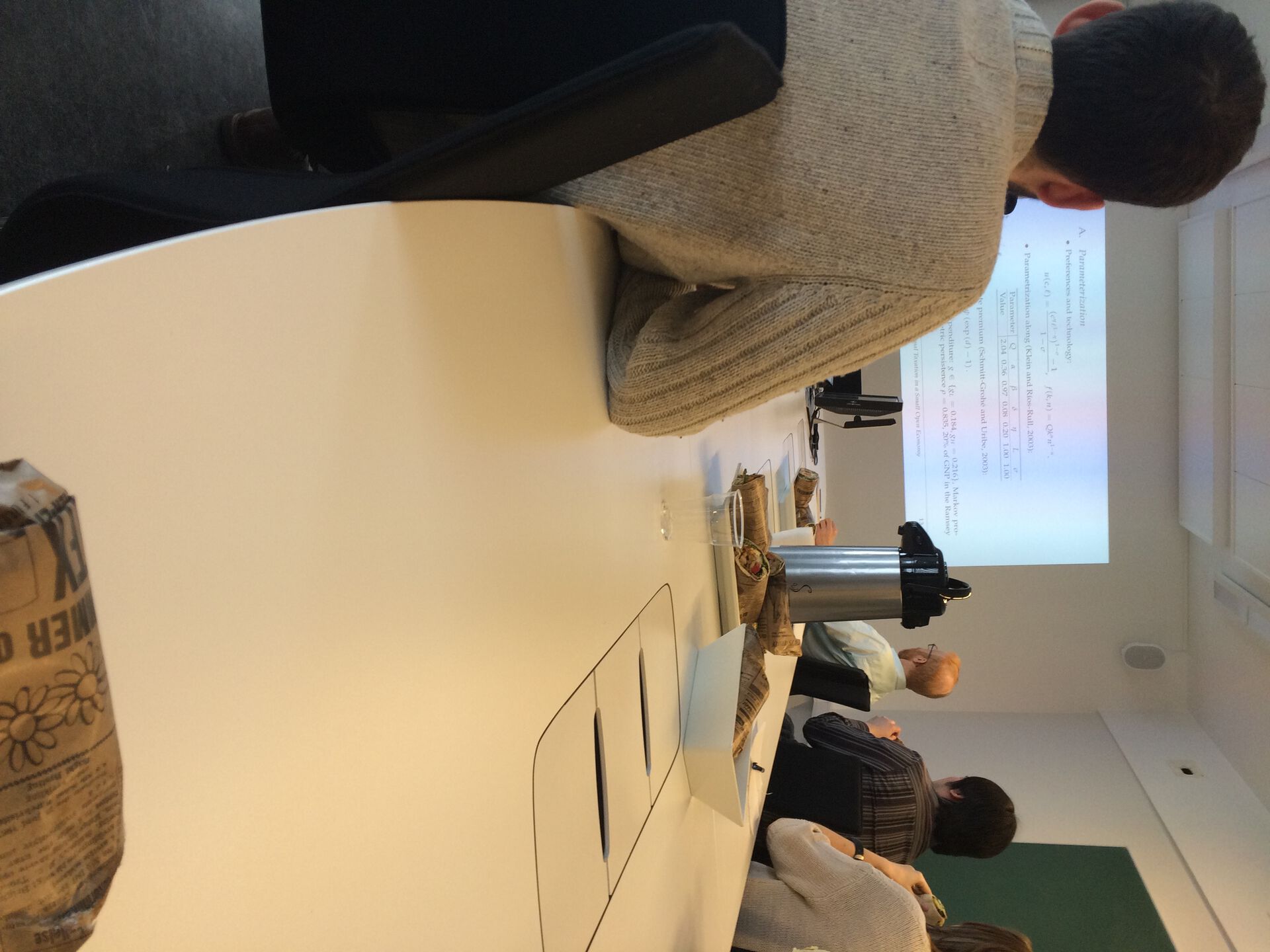Abstract:
This paper studies the time-consistent optimal taxation of factor income in a stochastic small open economy. A benevolent government taxes the domestic labor and global capital income of tax residents to finance a stochastic stream of government expenditure. The focus is on time-consistent optimal tax policies that are Markov perfect and balance the government's budget. After parametrizing the model economy, the stationary properties of the time-consistent optimal tax policy are compared to the time-inconsistent Ramsey tax policy and across different degrees of financial integration. The numerical analysis shows that the stationary mean of the time-consistent optimal capital income tax drops from around 66% up to 28% compared to the closed economy environment, and the mean labor income tax increases from around 12% up to 27%. On the other hand, the stationary mean capital income tax implied by the Ramsey allocation remains close to zero on average. Even though the stationary time-consistent optimal policy becomes more similar to the Ramsey policy in the open economy environment, the welfare effects are not monotone. In the closed economy, the consumption equivalent welfare gain of switching from the time-consistent optimal allocation to the first-best is 8.6% for the average household in the stationary equilibrium. In the open economy this difference increases as long as the borrowing conditions are relatively tight, but decreases to 6.6% when the interest rate premium becomes negligible.

